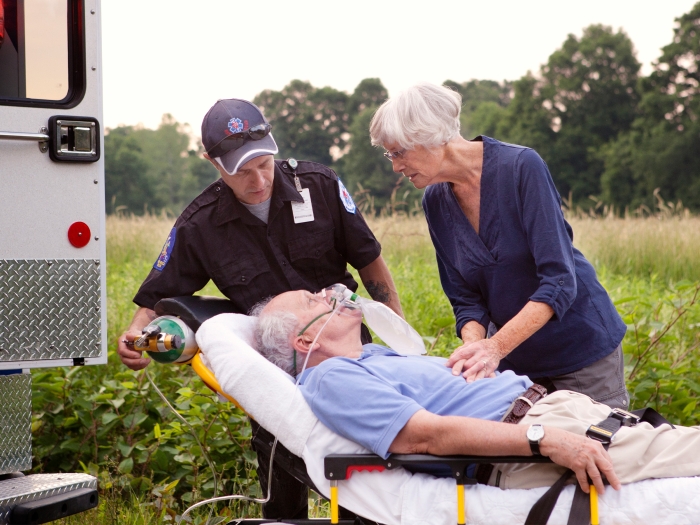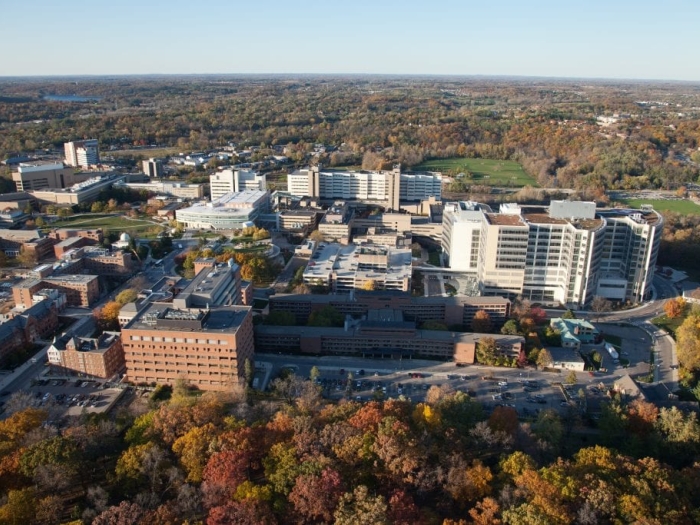National Dementia Workforce Study will survey those who work in homes, hospitals, clinics, assisted living facilities and nursing homes, yielding data to improve care and inform policy
6:00 AM
Author |

Watching a loved one suffer the slow decline of dementia is hard enough.
But trying to find care for them that’s high-quality, safe, available and affordable is nearly as difficult, as millions of American families have found out the hard way in recent years.
That lack of options stems from a combination of workforce shortages, payment policies and a lack of consistency in dementia care delivery and regulation, according to experts from the University of Michigan and the University of California, San Francisco and their colleagues.
Now, fueled by new five-year funding expected to total $81 million from the NIH’s National Institute on Aging or NIA, the team will work to improve understanding of the health care workforce that cares for people with dementia, through surveys and other methods that will produce data for clinicians, researchers, policymakers and others to use.
The new National Dementia Workforce Study will survey those who are paid to care for people with dementia in all settings, from their homes, assisted living facilities and nursing home memory care units, to hospitals and clinics.
“We can’t overstate the urgency of gathering this information and harnessing it in ways that can help the 6 million Americans already living with dementia, and the millions more who will be diagnosed in years to come as new tests and treatments for early-stage dementia become available,” says Donovan Maust, M.D., M.S., a geriatric psychiatrist and health care data researcher at U-M’s Michigan Medicine who leads the NDWS team. “This investment will fill the gaps in knowledge that stand in the way of better care, and make it possible to use resources more wisely.”
How it will work
Maust notes the key role of U-M’s Survey Research Center, part of the Institute for Social Research, and of the UCSF long term care research team led by co-principal investigator Joanne Spetz, Ph.D.
In addition, a wide range of partners will make the NDWS possible – including people with dementia and their family caregivers who, via the Alzheimer’s Association, will help shape the surveys that dementia care workers will take.
Every year starting in 2024, the NDWS aims to survey thousands of people who work as home health and personal care aides, nursing assistants, nurses of all licensing and practice levels, physicians, nurse practitioners, physician assistants, and clinical staff of facilities where people with dementia live.
Reaching such a large and diverse array of workers will make it possible to gather a truly representative picture of what dementia care is like today, says Spetz.
“Direct care workers who come to patients’ homes, and those who work on the front lines of long-term care, are often overlooked,” she said. “But the high turnover in these low-wage jobs, which often don’t require advanced training, is a major factor in the current crisis in dementia care.”
Generating data for widespread use
The NDWS grant will not only fund the annual surveys, but also the building of a secure data infrastructure that will make it possible for researchers anywhere to tap into the findings and use them in their work. Researchers will also have the chance to propose new survey questions and to receive funding to fuel their research using NDWS data.
Experts at state and federal agencies that regulate or pay for dementia care will also have access, potentially leading to new models to incentivize industry and nonprofit organizations to coordinate care better.
A key advance of the data built is the potential to anonymously link clinicians’ surveys to study the care received, and outcomes experienced, by groups of patients receiving care in different settings where workers answer surveys.
This will be made possible by harnessing and linking survey responses—anonymously—with data from Medicare, Medicaid and the Minimum Data Set, which nursing homes report to the federal government for all residents regardless of their insurance source.
“This is about creating a large-scale infrastructure and data source for others to use, as they seek to understand current variations and opportunities,” said Maust, who has already done something similar on a smaller scale when studying physicians’ prescribing practices for medications used to quell the behavioral symptoms often experienced by people with dementia.
Data linkages like this hold great power for rapid discovery – but must also be done in a way that safeguards the privacy of patients and the rights of potentially vulnerable workers. The NDWS grant includes funding to ensure this is done.
Broad potential impact
Spetz and her team have more than a decade’s experience running the UCSF Health Workforce Research Center on Long-Term Care through funding from the Health Resources & Services Administration, and recently won NIA funding to create an Advancing Workforce Analysis and Research for Dementia (AWARD) Network to develop researchers’ ability to study dementia workforce issues.
But Spetz, who directs UCSF’s Philip R. Lee Institute for Health Policy Studies, says the scope of the NDWS transcends the capabilities of any one institution.
One key challenge: Finding ways to partner with home health agencies, companies and organizations that operate nursing homes and assisted living facilities, and health systems to invite workers to take surveys.
Those who do answer surveys will be offered gift cards to compensate them for their time.
By focusing on employed workers, who are subject to state and federal oversight even when patients and their families pay out of pocket, the surveys could help agencies promote more coordinated care. Even if individuals leave the company or institution where they were employed when they completed their first survey, the team will seek permission to continue to survey them directly in later years, but without sharing their answers back to their original employer.
NDWS data could also reveal important differences between states in practices, care coordination and outcomes, because of wide variation in state regulations and what different licensed individuals can do in the course of their work.
“In many case, we suspect, there are systems problems, not individual problems, behind high turnover, nonstandard care and poor outcomes,” said Maust, an associate professor in the Department of Psychiatry who is a member of the U-M Institute for Healthcare Policy and Innovation and the VA Center for Clinical Management Research.
“Finding, training and keeping workers is a key challenge for all parts of the health care industry right now, and we hope to make it possible to find and address causes of burnout and quitting, including through federal workforce-related funding,” he added.
In addition to U-M, UCSF and the Alzheimer’s Association, other partners in the NDWS include the University of North Carolina at Chapel Hill, the University of Pennsylvania, Brown University, Yale University and Mathematica Inc. Consultants on the effort are AMDA, a professional society for post-acute and long-term care medicine, and PHI, a nonprofit direct care industry organization.
Funding for the NDWS comes from a Specialized Center Cooperative Agreement from NIA, which is part of the National Institutes of Health (U54AG084520)






